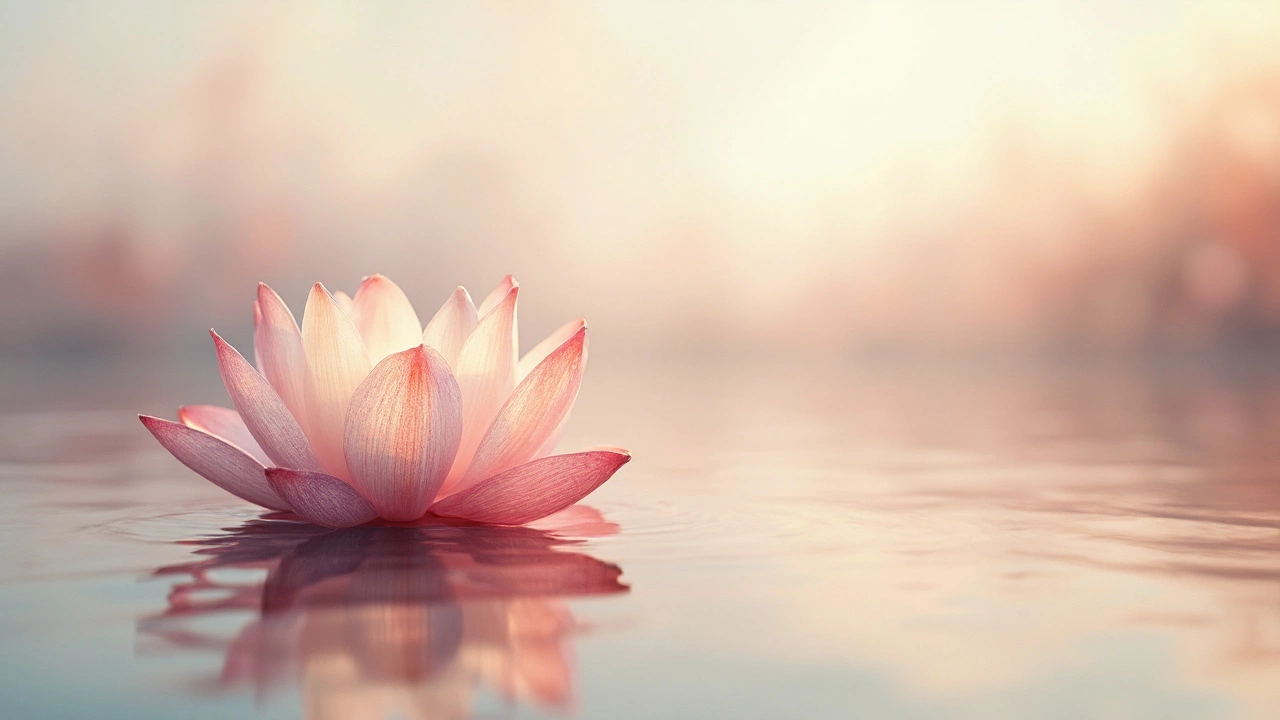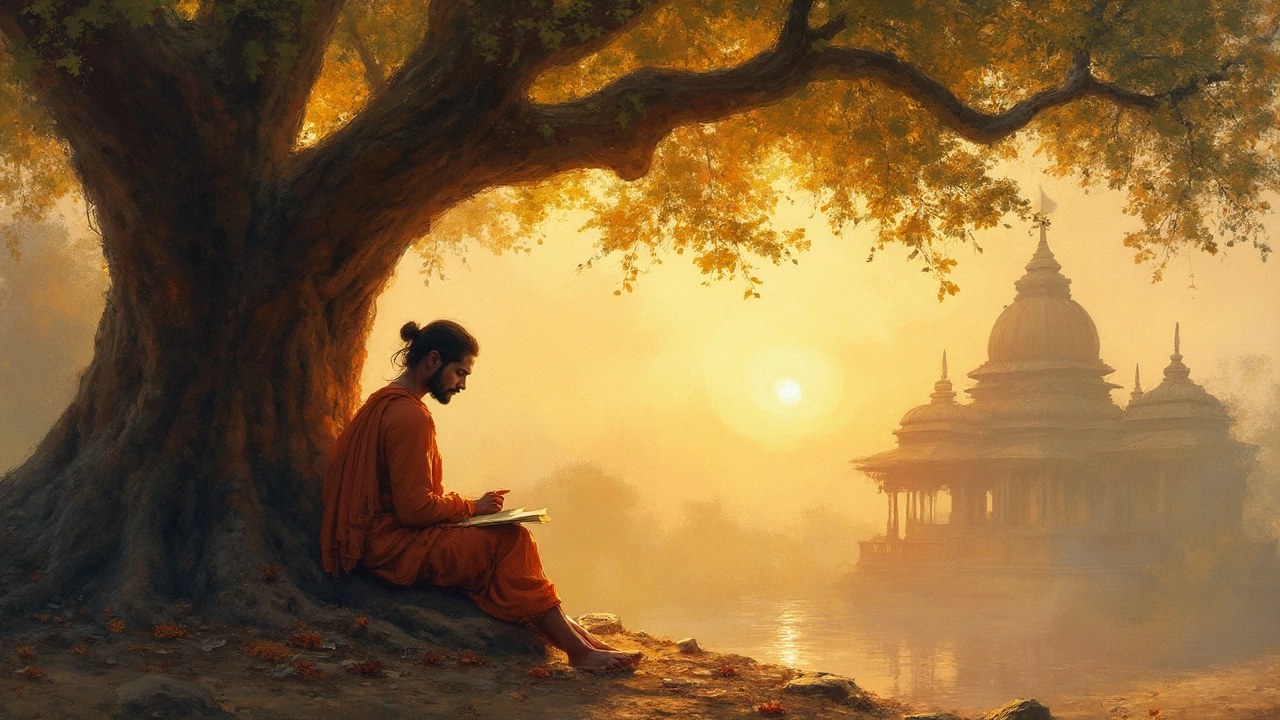One word poems sound like a paradox, don't they? It's like saying so much with so little. In the world of Indian poetry, it's more than just a neat trick; it's an art form that cuts to the chase. If you've ever read a line of poetry that left you lost in thought, imagine doing that with just one word. Wild, right?
India's love affair with poetry goes way back, but taking it down to a single word is something else. It's like boiling a whole pot of thoughts into one intense flavor. These tiny poems test the limits of our language, pushing poets to squeeze every ounce of meaning from one word.
The beauty of a one word poem is that it doesn't need filler. If you pick the right word – the one packed with layers of meaning or so relatable that it hits home instantly – you've struck gold. This art form challenges both the poet and the reader. It's no longer just about telling; it's about feeling, imagining, and even living that word in the moment.
- The Essence of One Word Poems
- Historical Roots in India
- Famous Examples and Writers
- Creating Your Own One Word Poem
The Essence of One Word Poems
Think about the magic in just one word capturing a whole universe of meaning. That's the beauty of a one word poem. It's not just about being concise; it's about being powerful. The word has to resonate, spark imagination, and stir emotion, all at once.
In India, where poetry has always been close to our cultural heartbeat, short poetry forms aren't just trendy—they've been woven into our literary fabric for centuries. In a land rich with languages and dialects, every word carries a history, a multitude of meanings, making it a perfect ground for crafting such poems.
One word poetry dares poets to distill their thoughts into a single, impactful word. It's like a punchline without the joke—sharp, precise, and unforgettable. The chosen word becomes a vessel—a metaphor, a feeling, an idea, all boiled down to a core essence. Why use five when one will do?
The modern appeal lies in its simplicity and directness. In a fast-paced world where everyone’s rushing, a short poetry piece like this not only fits into our busy lives but also stops us in our tracks. It forces us to pause, think, and feel, which is an extraordinary feat for just a word.
So, how do poets pick that one magical word? It involves understanding the nuances and layers that a word holds. In some cases, it might be a word loaded with cultural significance or one that evokes a universal human experience.
For instance, consider using a word from the rich tapestry of Indian languages. A single Hindi or Tamil word can evoke deep emotions and vivid imagery, often lacking a direct translation in English. It challenges both the poet writing it and the reader interpreting it, 'What's really being said here?' It’s a puzzle, a riddle you’re eager to solve.
Ultimately, the real trick isn't just in writing a one word poem—it's in writing one that lingers longer than an epic. And that, my friend, is the true test of a poet’s prowess.
Historical Roots in India
India's dance with poetry isn't something that just happened overnight. It's like our favorite comfort food—steeped in culture and passed down through generations. Long before 'one word' became a poetic style, India was already bursting with stories, ideas, and wisdom wrapped in verse.
Now, let's not forget that Sanskrit is like the granddaddy of all these languages. Ancient Indian epics like the Ramayana and Mahabharata are massive, right? They're like the Netflix binges of poetry! But within those epic stories are nuggets of wisdom that sometimes boil down to just one striking word or phrase. It's kinda like how a lyric can give you goosebumps—the power of fewer words with deeper impacts.
Sanskrit poetry had this crazy knack for economy of expression. 'Anuṣṭubh' is a word that essentially means a stanza of four lines, but poets back in the day would often use single words for profound themes. Fast forward a bit, and you've got schools of thought in India like Buddhism and Jainism that also favored short, sharp aphorisms to convey complex ideas.
With the growth of short poetry in India, writers began to experiment more. From the mysticism of Kabir's dohas to the playful brevity of haiku-like forms in more recent times, Indian poets have long embraced the power of simplicity. Using just a one word poem isn't just about economy—it's about a cultural history of finding meaning in the minimalist, and in hinting rather than telling.

Famous Examples and Writers
India's poetry scene has always been vibrant and diverse, and when it comes to one word poems, it doesn't disappoint. These poems are like little fireworks—small but leaving a big impact. One of the most recognizable names you might come across in this realm is Arundhathi Subramaniam. Known more for her rich and layered poetry collections, she's dabbled in the world of concise poetry, sometimes delivering an emotional punch with just a solitary word.
Then there's Rani Sushmita, a contemporary poet who believes in minimalistic expression. She once famously used the single word "Azaadi" to evoke the struggle and joy of freedom, breaching all cultural and emotional barriers. Her work has been a testament to the power of a single word to ignite a movement or an idea.
Want to dive deeper into the realm of such poems? You'll find quite a few in literary journals and online platforms dedicated to minimalist writing. Publications such as ‘Haiku India’ not only focus on traditional haikus but also embrace the challenge of one word poetry. Here, writers can contribute and find poems that reflect thoughts with startling clarity and brevity.
While famous names might catch your eye, the beauty of this art form is its accessibility. You don’t need to be a well-known poet to create something impactful. In fact, one word poetry is a popular exercise in poetry workshops for budding writers in India. Try it out next time you feel creatively stuck; you might surprise yourself with how much you can say—or feel—through a single word.
Creating Your Own One Word Poem
So you're curious about diving into the world of one word poems? It's not as tricky as it sounds, but nailing it takes a bit of practice. The idea is to find a word that's a powerhouse—think of it as the spark that sets off a fireworks show in the mind.
Start by brainstorming words that hit you right in the feels. Maybe it's something nostalgic like "home," or a word with layers and layers of meaning, like "freedom." The goal is to pick something that, when you hear it, you get an avalanche of thoughts and images.
Got your word? Great. Now, think about the context. This is where you play poet and storyteller, all in one. What emotions or stories are popping up in your mind when you read that word? Jot those thoughts down. This helps in ensuring your audience catches the undercurrent you're shooting for.
Here's a quick way to look at it:
- Select the Word: Choose a word that's rich in meaning.
- Consider the Impact: Reflect on how this word makes you feel or think.
- Define the Context: Think about a situation or emotion that this word encapsulates perfectly.
Remember, the beauty of a one word poem lies in its simplicity and punch. It’s meant to be quick like a lightning bolt, powerful and enlightening. And let’s face it, there's a certain thrill in leaving room for interpretation.
To give you a little nudge, here are some tried-and-true word themes that work their magic: love, chaos, journey, and whisper. These words are like little capsules loaded with stories waiting to be told. Now it's your turn to unleash your creativity and see where it takes you!
